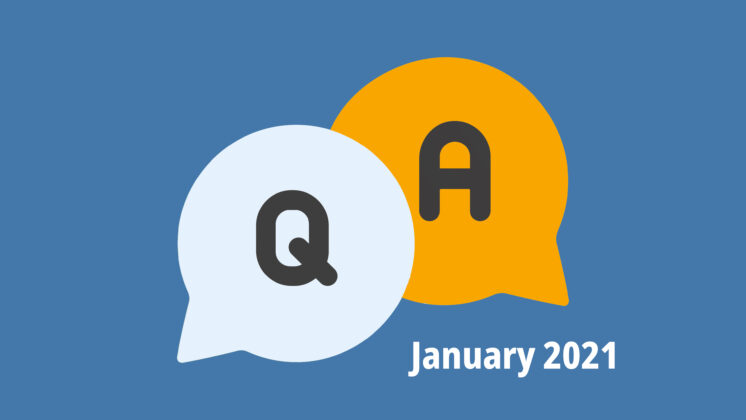A new year at last! Time to put the disasters and (negative) disruptions of 2020 behind us and look ahead. As we say at GLOBIS, never stop learning!
But who among us doesn’t wish we could get a little ahead of the game, especially at the start of a new year? Who isn’t looking back on something that happened in 2020 and thinking, “Man, I wish I’d known that sooner!”
In a special New Year’s edition of our monthly Q&A, we asked GLOBIS University faculty the perfect question to help you get that edge:
“What is the one thing you wish every student knew about your subject before they took your class?”
Here’s what they had to say.
January 2021 Questions & Answers
Class: Essentials of Accounting
The biggest challenge that many students face before taking accounting courses is a fear of numbers. My job is to help them realize that it’s not a list of numbers they should be afraid of—they should be afraid of their lack of curiosity.
Curiosity is how we gain insights into business. If we let the mere sight of numbers paralyze us, that kills our curiosity outright and cripples our power as business leaders. Resist that urge to shy away from numbers, and you’ll find yourself looking at new strategic viewpoints. You’ll discover a more profound commitment to business management, along with a good set of financial knowledge and skills.
Class: Critical Thinking
Critical thinking is an essential skill in business, and it will help you become better at solving problems, making decisions, leadership, listening, and even creativity . . . but it will not solve all your problems. Despite what classical economists may say, people don’t always behave rationally. People can be emotional, so there are times we need to use critical thinking, and there are times to appeal to emotions. Out there in the real world, you can use critical thinking strategically to decide when it’s appropriate to try to convince your audience using logic and when it’s time to try other tactics.
When my three-year-old daughter is angry at me or crying, trying to explain the situation logically just won’t work. Instead, I could just give her a hug (or ice cream) to help her calm down. Then I will (should) have a greater chance of successfully communicating with her. Working on improving your critical thinking skills as well as your emotional skills like EQ and AQ will help you become a more effective communicator—and person.
Class: Business Analytics
Students often have this idea that Business Analytics involves difficult mathematics and statistics. While these advanced skills will certainly help, we at GLOBIS don’t believe that they are crucial for effective data analysis. Many successful business leaders are not trained in advanced mathematics.
The goal of analysis is to find patterns and relationships between business factors and results. A proficiency with tools such as Microsoft Excel and an understanding of basic statistical concepts such as correlations can go a long way. Such modern tools help us visualize data in just a few clicks. Once we have the visual, we can inspect the graphs to identify trends, outliers, clusters, and so on. We can discover important insights about the data and communicate our findings to stakeholders. Results from the analysis will in turn help us make business decisions. Your eyes are the most powerful tools you have for analysis.
We focus on the process of solving problems with quantitative data, but more than maths, we make use of tools and visualization techniques.
Class: Marketing 1
The most important thing to understand about marketing is this: marketing is both an art and a science.
Marketing blends deep analysis and number crunching to identify opportunities and customer targets with creativity, moving consumers’ hearts and creating desire. It’s not simply an automated tool to buy online ads for targeted consumer groups. Any message that comes across a consumer’s screen must influence that consumer to take action—that’s where creativity comes into play.
It’s equally important to understand that every exciting, funny, or moving TV commercial, video, or other advertisement we see wasn’t made by some team of creatives locked in a room somewhere. An enormous amount of market and consumer analysis precedes any marketing message and creation. In fact, advertisements are the end product of a long process—a process that’s also about earning the support of media and individuals to become advocates of your company and/or brand. They are the most convincing proponents any marketer can hope to get. And getting them requires data-driven understanding and an emotive message. Marketing is a very deep (and fun!) discipline that is both introspective and extrospective. Done right, it’s scientific and artistic.
Class: Moonshot Transformation
Technovate’s main challenge is not acquiring technological knowledge, but coping with change. In the case of business leaders, that also includes motivating others to embrace change, rather than fight against it.
Soft skills like communication, critical thinking, and empathy will always be more important than any technical knowledge. Therefore, passion and enthusiasm to achieve your mission are the fundamental things you need to succeed in a Technovate world.
Want more GLOBIS MBA faculty insights? Click here for more Critical Questioning.



